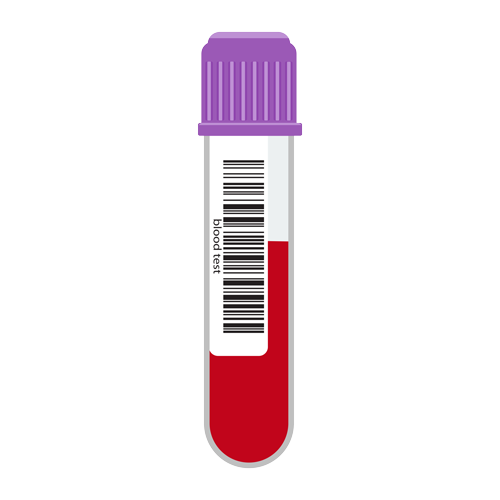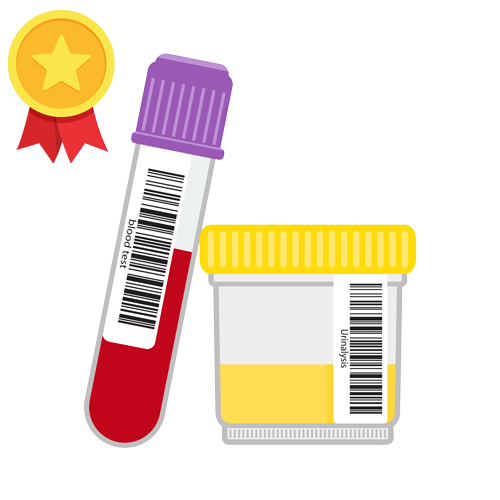STD Testing
Experiencing symptoms? Visit us today at one of our multiple locations open 7 days a week!
Daily STD Testing Available
Screenings for Gonorrhea, Chlamydia, Trichomonas, and more.
Positive Test?
Our team provides care and support for treatment.
Quick Results
STD Panel results generally available within 48 hours!
Easy Access to Test Results
View anytime on the Patient Portal or MyQuest.
Quality Care Made Accessible
Most insurance plans accepted including Medicaid & Medicare.










No Insurance? We Offer Affordable Self-Pay Pricing

$180
Chlamydia
Trichomonas

$150
HIV
Syphilis

$250
Chlamydia
Trichomonas
HIV
Syphilis
* Injectables and medications not included.
Why Choose Midwest Express Clinic?
We provide discreet STD testing without judgment for a variety of concerns, including HIV, chlamydia, herpes, hepatitis, syphilis, and other venereal diseases (VD). Our walk-in clinics offer quick and discreet testing, ensuring you receive prompt results and any necessary treatment.
STDs Risk Factors
- Unprotected oral, anal, or genital sex
- History of STIs
- Multiple sexual partners
- Substance abuse (impaired decision-making)
- Not disclosing partner’s sexual history and health
- Not up to date on vaccinations
Understand the Difference
STIs
- Caused by viruses, bacteria, parasites, or yeast spread through sexual contact
- Early phase of an STD, early treatment can prevent it from advancing
- Many have no noticeable symptoms
- Not all are treatable (HPV can lead to cervical cancer)
STDs
- Advanced infections that begin as STIs
- Some can lead to serious health issues, like infertility, organ damage, or cancer
- Common STDs: HIV, syphilis, gonorrhea, chlamydia, and herpes
- May show symptoms such as sores, discharge, pain, or rashes, but some have no symptoms
Visit the links below to learn more about specific STIs and STDs:
Frequently Asked Questions
Is it okay to ask a potential sexual partner to get tested before engaging in sexual activity together?
Yes, absolutely! You should keep an open line of communication between you and your sexual partner before engaging in sexual activity with them for the first time and throughout any physical relationship.
Do condoms prevent STIs?
I am sexually active. How often should I get tested?
We recommend a minimum of once per year even if you are having safe sex. If you have unprotected sex, we recommend getting tested right away. If you are participating in casual sex, we recommend at least every six months.
Can men get HPV?
Yes.
I have tested positive for a STI/STD, and I am pregnant. Is my baby at risk?
It is possible to pass your infection or disease to your baby, so be sure to discuss all risks and concerns prior to delivery. Your provider may decide that the safest option for delivery is a cesarean, also known as a C-section.
What are the treatments for STDs?
Most, if not all, STDs that are curable can be treated with a prescribed antibiotic from the medical provider. If you are pregnant, be sure to let your provider know, as this could change the prescription you are given to keep your baby safe.
STD testing is available at these locations:
Illinois
Aurora
Blue Island
Bolingbrook
Bourbonnais
Burbank
Calumet Park
Carol Stream
Chicago Ridge
Cicero
Elmhurst on Butterfield
Elmhurst on York Street
Evergreen Park
Lombard
Matteson
Melrose Park
Norridge
Northbrook
Richton Park
River Forest
Skokie
Tinley Park on Harlem
Tinley Park on LaGrange
Westmont
Wheaton
Willowbrook

